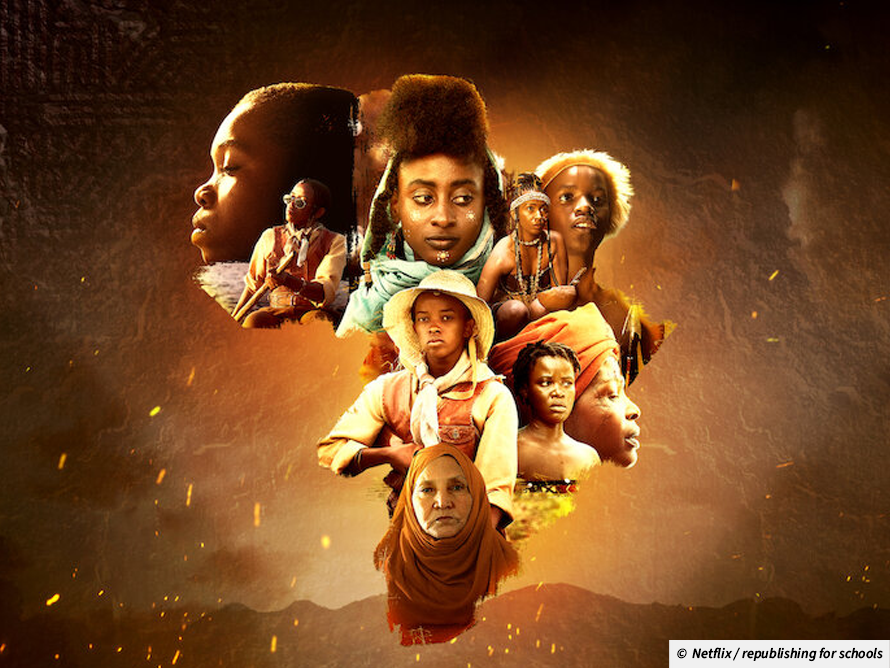Are stories what make us human? Netflix and UNESCO have brought six African traditional folktales to the small screen. But some think we should look forward, not backward.
New life for African folktales on Netflix
 Folklore to fantasy: All six of the new dramas are focused on female characters.
Folklore to fantasy: All six of the new dramas are focused on female characters. Glossary
Drought - A time when there is not enough water and the ground is very dry.
UNESCO - The United Nations Educational, Scientific and Cultural Organisation. It aims to promote international cooperation in the arts, education, science and culture.
AI - A computer programme that has been designed to think.
Arranged marriage - A marriage planned by (usually) the families of a couple, rather than the couple themselves.
Colonial - When a region or country is controlled politically by another.
Taboos - Things that are forbidden due to social rules of behaviour.
Nazi Germany - The German state between 1933 and 1945, when it was ruled by Adolf Hitler's Nazi party.
Genocide - The annihilation of a people, either through killing of its members, or through the suppression of its culture.
